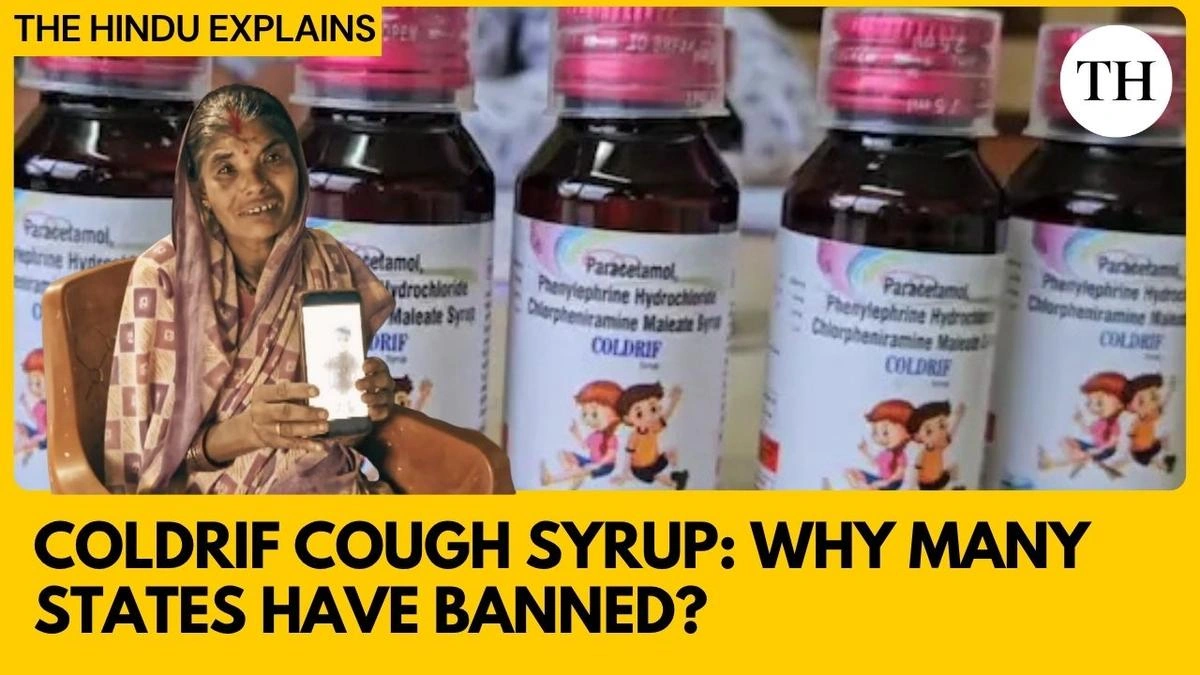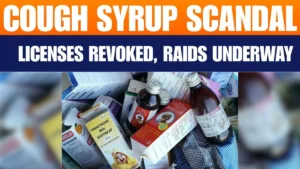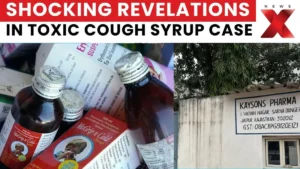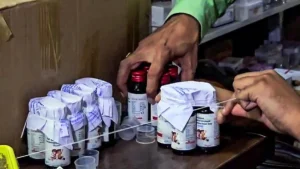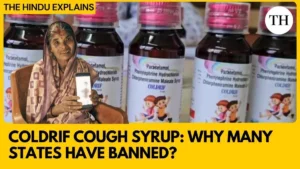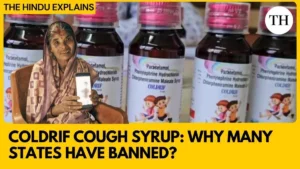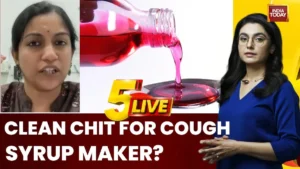Karnataka Bans Coldrif Cough Syrup Following Death Reports in MP and Rajasthan
Okay, folks, let’s talk about something serious: the recent Coldrif cough syrup ban in Karnataka. It’s easy to just see the headline and move on, but I want to dive deeper. Why is this happening? What does it mean for you and your family? And what should you be looking out for?
Why This Ban Matters | More Than Just a Headline
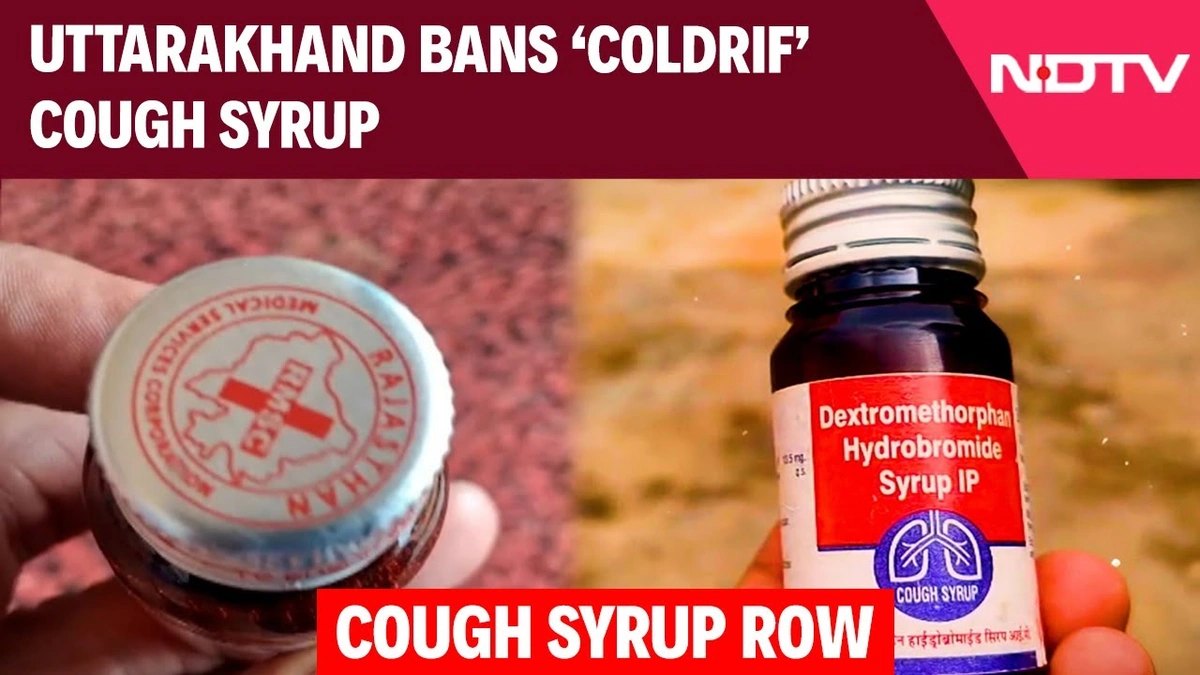
So, Karnataka took this step after reports of deaths in Madhya Pradesh (MP) and Rajasthan allegedly linked to cough syrups. Let’s be honest, that’s terrifying. But here’s the thing: it’s not just about this one brand. It highlights a much bigger problem – the regulation and quality control of pharmaceuticals in India. Think about it: if a pharmaceutical product can cause this much harm, what else is slipping through the cracks? And this is the reason this should matter to you.
I initially thought this was an isolated incident, but then I realized this isn’t just about Coldrif. It’s about the system. It’s about ensuring that the medicines we trust to make us better aren’t actually making us worse. What fascinates me is how quickly these things escalate. From a few reported cases to a state-wide ban – that shows just how seriously the government is (or at least, should be) taking this. But is it enough?
Decoding the Details | What’s Really in Your Cough Syrup?
Let’s get a bit technical for a moment. Cough syrups, like Coldrif, usually contain a combination of ingredients – antihistamines, decongestants, and cough suppressants. The problem arises when these ingredients are either poorly manufactured, contain contaminants, or are given in incorrect dosages. The deaths in MP and Rajasthan are suspected to be linked to diethylene glycol (DEG) or ethylene glycol (EG) contamination, which are toxic substances. These chemicals should never be in medication.
Now, I know what you’re thinking: “How can something like that even happen?” Well, that’s where the regulatory framework comes in. There are supposed to be stringent checks and balances, regular inspections, and quality control measures at every stage of manufacturing. But clearly, something isn’t working as it should. And remember, consumer safety is paramount. What I’m trying to say is that we should ensure that medicines we purchase are safe to consume.
What You Can Do | A Practical Guide for Concerned Consumers
Okay, so what can you do about all this? You might feel helpless, but you’re not. Here’s how to navigate this situation:
- Be a Label Detective: Always, always read the label carefully. Check the ingredients, the manufacturer’s details, and the expiry date. Look for any warning signs or unusual instructions.
- Consult Your Doctor: Don’t self-medicate, especially with children. Talk to your doctor or a qualified medical professional before giving any medication, even over-the-counter cough syrups.
- Buy from Reputable Sources: Stick to trusted pharmacies and avoid buying medicines from unverified sources.
- Report Suspicious Products: If you suspect a medicine is substandard or causing adverse effects, report it to the relevant authorities. The Central Drugs Standard Control Organization (CDSCO) is a good place to start.
A common mistake I see people make is assuming that because something is sold in a pharmacy, it’s automatically safe. Not true! You need to be vigilant. And let’s be honest, it shouldn’t be this way. We should be able to trust that the medicines we buy are safe. But until the system is fixed, we need to take matters into our own hands. The one thing you absolutely must double-check is the manufacturing license. If it’s not there, or looks dodgy, steer clear.
The Way Forward | Demanding Accountability and Transparency
So, what’s the solution? This cough syrup scandal calls for serious reforms in the pharmaceutical industry. We need stricter regulations, more frequent inspections, and harsher penalties for manufacturers who compromise on quality. We also need greater transparency – consumers have a right to know what’s in their medicines and where they come from. As per the guidelines mentioned in the information bulletin, pharmaceutical companies must ensure medicine safety.
And it’s not just about the government. We, as consumers, also have a role to play. We need to demand accountability from pharmaceutical companies and hold them responsible for the safety of their products. We need to raise our voices and demand better quality control. The role of drug regulatory authorities is crucial in this matter.
I initially thought this was straightforward, but then I realized how many layers there are to this problem. It’s not just about Coldrif; it’s about the entire system. And that is why the solution needs to be comprehensive.
Looking Ahead | A Call for Change
The Coldrif cough syrup ban is a wake-up call. It’s a reminder that we can’t take our health for granted and that we need to be proactive in protecting ourselves and our families. This isn’t just about one brand or one incident; it’s about creating a safer and more transparent pharmaceutical industry for everyone. Let’s ensure that such incidents are avoided. And, let’s keep demanding better – because our health is worth it.
FAQ
What should I do if I have Coldrif cough syrup at home?
The safest course of action is to dispose of it immediately and consult a doctor if you or a family member has consumed it and are experiencing any adverse effects.
Where can I report a suspected substandard medicine?
You can report it to the Central Drugs Standard Control Organization (CDSCO) or your local state drug control department.
Are there any alternative cough syrups that are considered safe?
It’s best to consult your doctor for recommendations on safe and effective cough syrups based on your specific needs and medical history.
What are the symptoms of diethylene glycol (DEG) poisoning?
Symptoms can include nausea, vomiting, abdominal pain, kidney failure, and neurological problems. Seek immediate medical attention if you suspect DEG poisoning.
How can I ensure the medicines I buy are genuine and safe?
Always buy from reputable pharmacies, check the packaging for tampering, and verify the manufacturer’s details and expiry date. If something seems off, don’t risk it.
What is the government doing to prevent similar incidents in the future?
The government is likely reviewing and strengthening its regulatory framework for pharmaceuticals, including increasing inspections, improving quality control measures, and imposing stricter penalties for violations.
